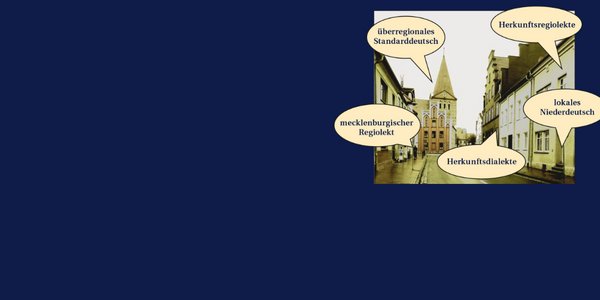
Language Change in the Immigration Areas of Flight and Expulsion.
Language Use and Language Perception among Old Residents and Immigrated Displaced Persons in Mecklenburg since 1945
Project duration: May 2020 - July 2022
Project manager: Klaas-Hinrich Ehlers
Funding: BKM
The flight and expulsion of more than twelve million people from the eastern German language regions mark what is probably the most significant caesura in recent German language history. Although the immigration of refugees and expellees into the area of the later FRG and GDR completely upended the structure of the speaker communities there, the linguistic consequences of the sudden immigration surge for the immigration areas have hardly ever been studied so far. Using the example of a study region in northern Mecklenburg, which was particularly shaped by immigration after the Second World War, this research gap will be closed on a broad empirical basis.
The aim of the research project is to reconstruct the complex language contact situations that resulted from immigration at the dialectal and colloquial (regiolectal) level, and to trace them in their functional shifts and evaluative revaluations over the post-war decades up to the present. One of the questions to be asked here is to what extent the immigration of displaced persons has triggered changes in individual, family and local language use and led to new patterns of language acquisition and language mediation in a generational comparison. It is also to be investigated whether the various population groups differ in their perception of contact varieties and to what extent the subjects' variety-related language attitudes have shifted in their assessment criteria and evaluations over the post-war decades.
The empirical basis of the study are biographical and language-biographical interviews conducted between 2010 and 2015 with a total of 90 displaced persons and former residents and their descendants. The content-analytical evaluation of this corpus provides a sound basis for an oral language history of the post-war decades that differentiates locally, socially and by variety. Archival research on the social history of the communication spaces studied will complement and triangulate the history of displaced persons' immigration and its linguistic consequences as subjectively recalled in the interviews.

